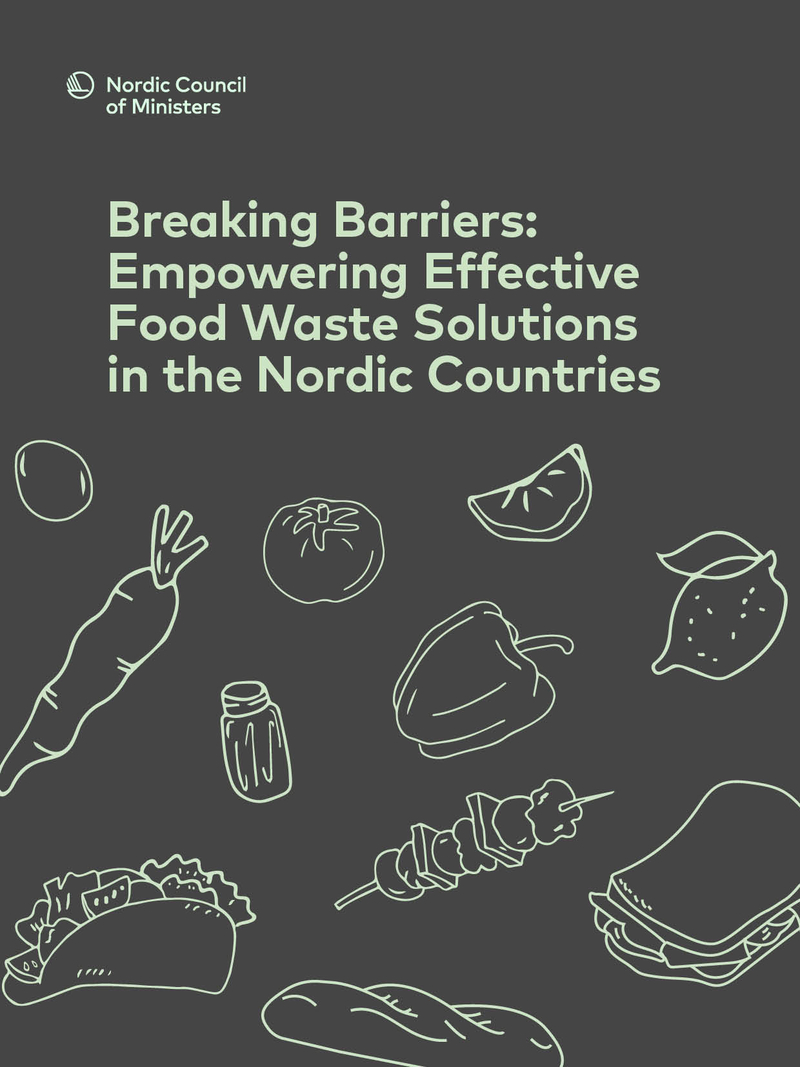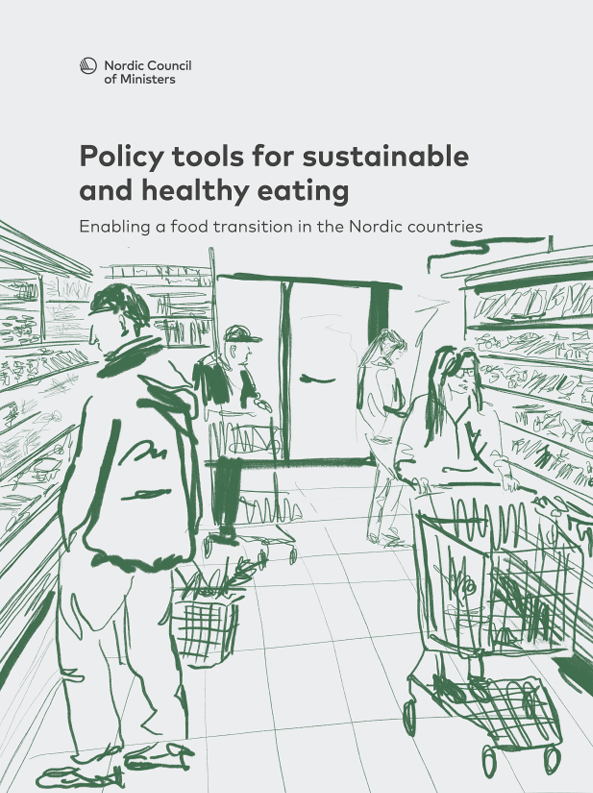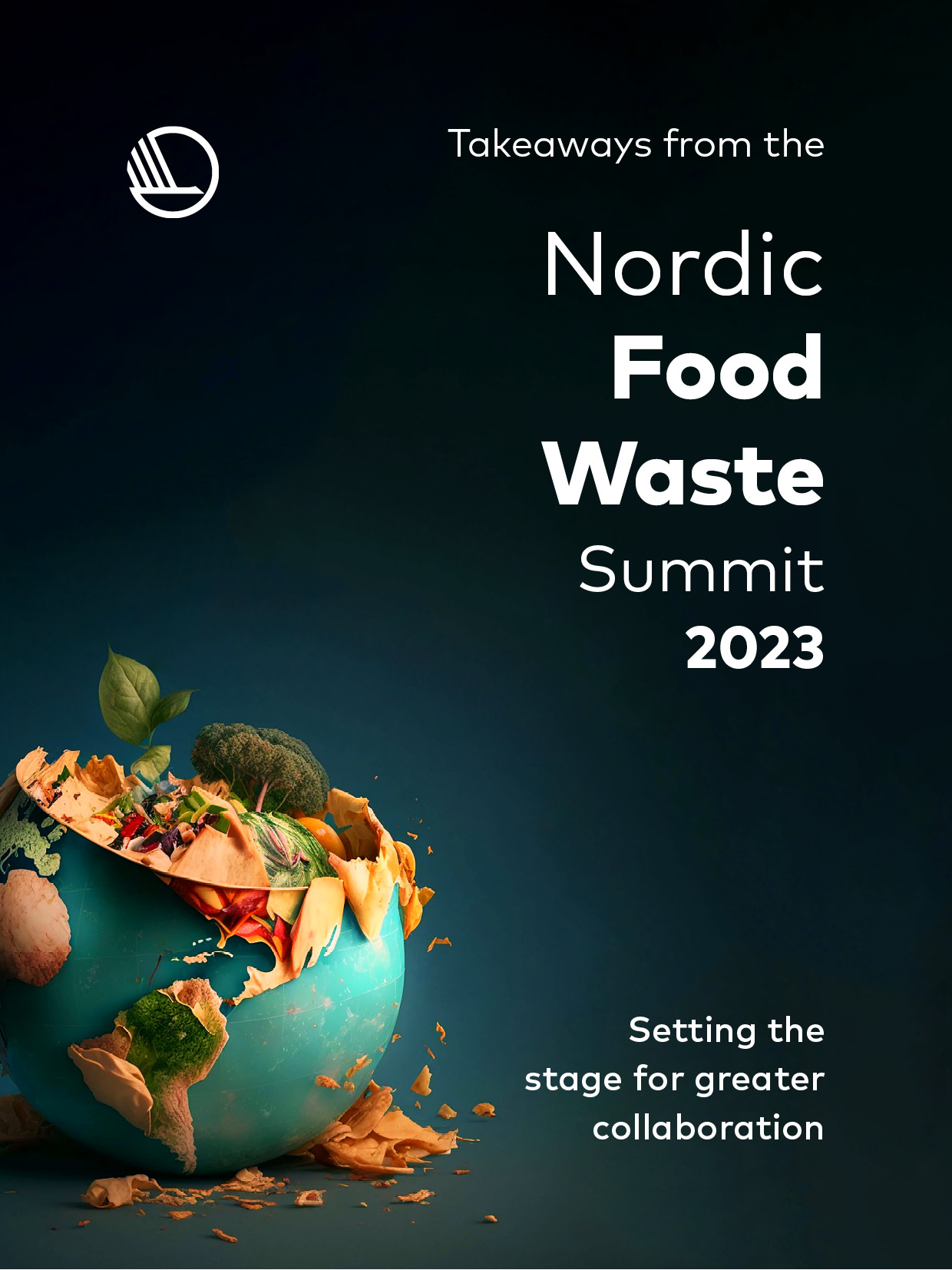
Healthy and Sustainable Food Systems
The Healthy and Sustainable Food Systems project has focused on the role of our food for sustainable living. With a focus on the consumption part of our food systems, the project has aimed to look into which policies can assist and enable more healthy and sustainable food consumption.
Food systems contribute to approximately a third of the total global greenhouse gas emissions and pose the single biggest threat to biodiversity loss. At the same time, current food consumption in the Nordics is not supporting our health. More than half of the Nordic population are either obese or suffering from overweight, which comes at a huge cost for our societies and health care systems.
“There are no pathways to limit global warming to 1.5, or 2.0 degrees, that do not require changes to our food systems. We can never phase out food like we will with fossil fuels. Food is essential to life itself.”
– Karen Ellemann, Secretary General, Nordic Council of Ministers
Key outputs
The project has focused on several themes within food systems and food consumption for sustainable lifestyles. The core principle of the project has been to explore food as a driver for health and green transition. This has been done through a range of activities and publications. This brief report provides and overview of some of the activities and publications from the project.
Towards healthy and sustainable diets
The launch of the Nordic Nutrition Recommendations 2023 (NNR2023) was hosted by the project. NNR2023 has been an important reference for a range of follow-up actives to situate food systems discussions at the core of climate and health action. Throughout the project period this has been done through dialogues, meetings, and seminars at conferences such as COP27 and COP28, as well as political weeks across the Nordic countries.
In March 2024, the report Policy Tools for Sustainable and Healthy Eating was launched. The report offers a framework and recommendations for policy tools that can enable dietary change in the Nordic countries. The report supplements NNR2023 and demonstrates how the Nordic countries can bolster their food consumption strategies in a variety of ways and create an environment that makes it possible for citizens to eat sustainably and healthily. The interconnection between a range of policy tools from nudging to regulation was explored in relation to behavioural change.
Action for reduced food loss and waste
The project has reactivated Nordic efforts to reduce food loss and waste. The Nordic Food Waste Summit was hosted as part of the project and marked a milestone for Nordic cooperation for reduced food loss and waste.
The Nordic Food Waste Summit 2023 gathered ministers, entrepreneurs, activists, and royalty side by side in a joint battle against wasted resources. The summit contributed to bringing food waste to the top of the political agenda.
The summit was followed by a political commitment from the Nordic Council of Ministers for Fisheries, Aquaculture, Agriculture, Food and Forestry (MR-FJLS). In the commitment called “Reducing food waste for a green Nordic Region” the ministers commit to work more actively to reduce food waste through a range of activities that now guide the Nordic cooperation’s work within the area.
In September 2024, the project released a new major report with policy recommendations for reduced food loss and waste produced by Karlstad University – Breaking Barriers: Empowering Effective Food Waste Solutions in the Nordic Countries. The political commitment is available here.
“Fighting food waste is not just a climate issue. It is also an economical and ethical issue. Reducing food waste is about global equity.”
– HRH Princess Marie of Denmark at the Nordic Food Waste Summit.
Growing a food aware generation
Younger generations are needed in the efforts towards healthy and sustainable food systems. In the sub-project “See, Sow and Taste” children and young people can learn more about these important issues through hands-on exercises. The project is a pedagogic and cultural pilot project led by NordGen in collaboration with other Nordic institutions and local actors in Lithuania.
About 1 000 children participated in the project during 2023. In 2024, the next project phase involves schools in the Faroe Islands and Lithuania. The lessons learnt from this pilot project will hopefully form a base for a larger multinational project teaching children and youth about food, cultivation, biodiversity, climate change, self-sufficiency and the importance of healthy food.
Learn more about this sub-project here.
Policy recommendations
The different activities within the project have increasingly shown that holistic approaches and complementary interventions are needed to tackle the challenges within our food systems. There are no single solutions. What is clear is that a lot more policies need to be adopted to increase the speed of the transition towards healthy and sustainable food systems.
The sub-projects have explored policy tools such as legislation, subsidies and taxes, labelling, education, procurement policies and common strategies across the Nordic region. It has also become evident that stronger Nordic cooperation can help the industry adapt to new regulations that could be more uniform across the countries, and the public acceptance of different interventions could be increased if they were similar in nature and approach in all countries.
Future directions
The area of healthy and sustainable food systems is broad. More knowledge is needed, and more innovations are needed. There is also a need to create food environments that can foster innovation and foster behaviour change for healthy and sustainable diets.
Resources
- Download Breaking Barriers: Empowering Effective Food Waste Solutions in the Nordic Countries (norden.org)
- Download Policy Tools for Sustainable and Healthy Eating (nordregio.org)
- Read Takeaways from the Nordic Food Waste Summit (norden.org)


